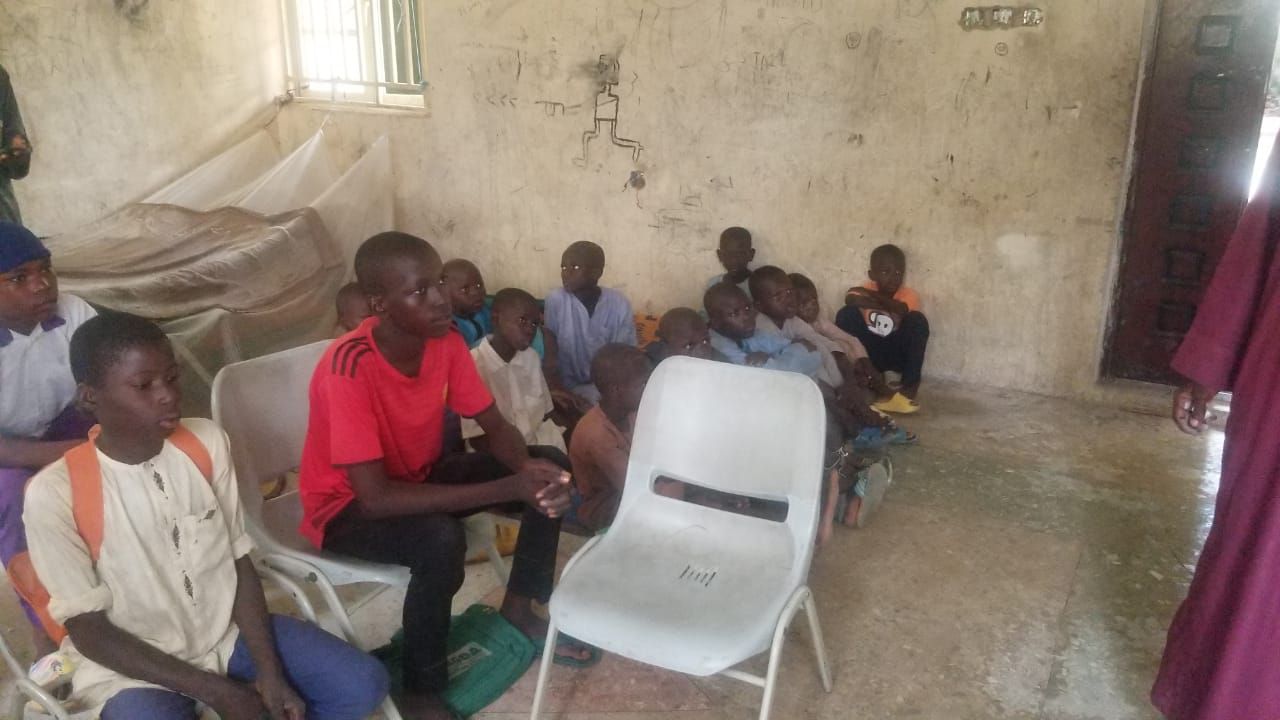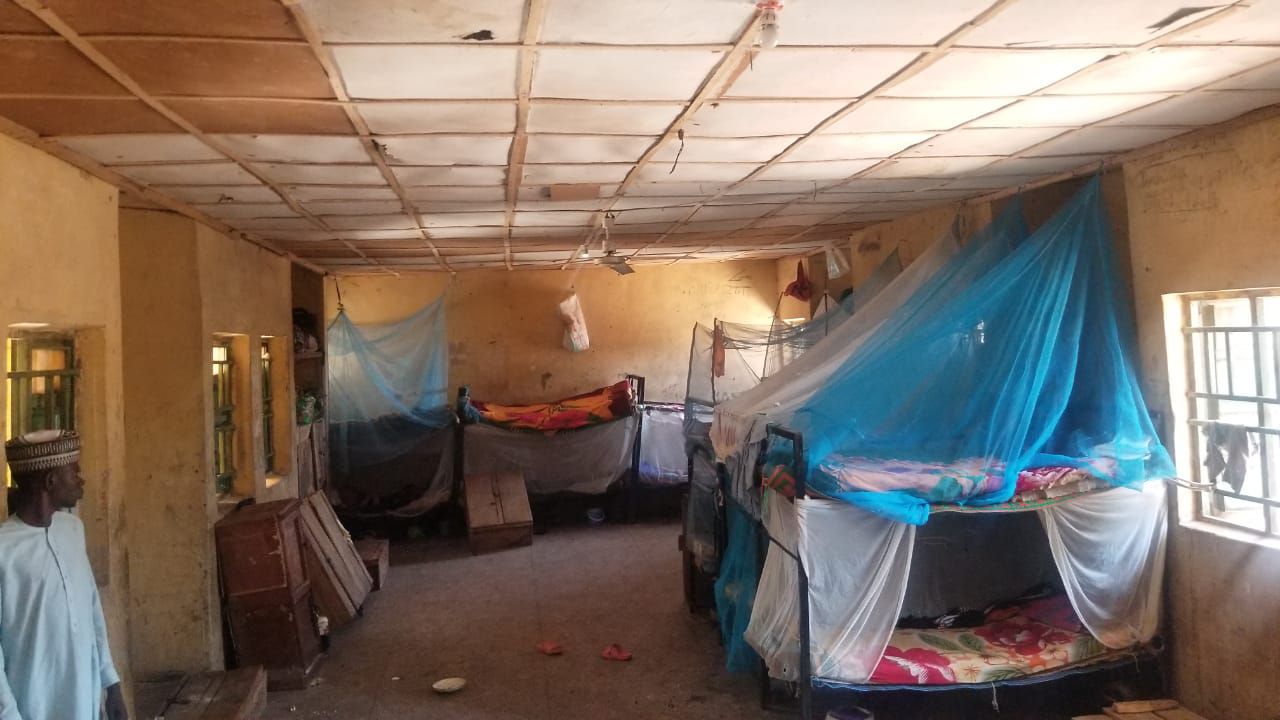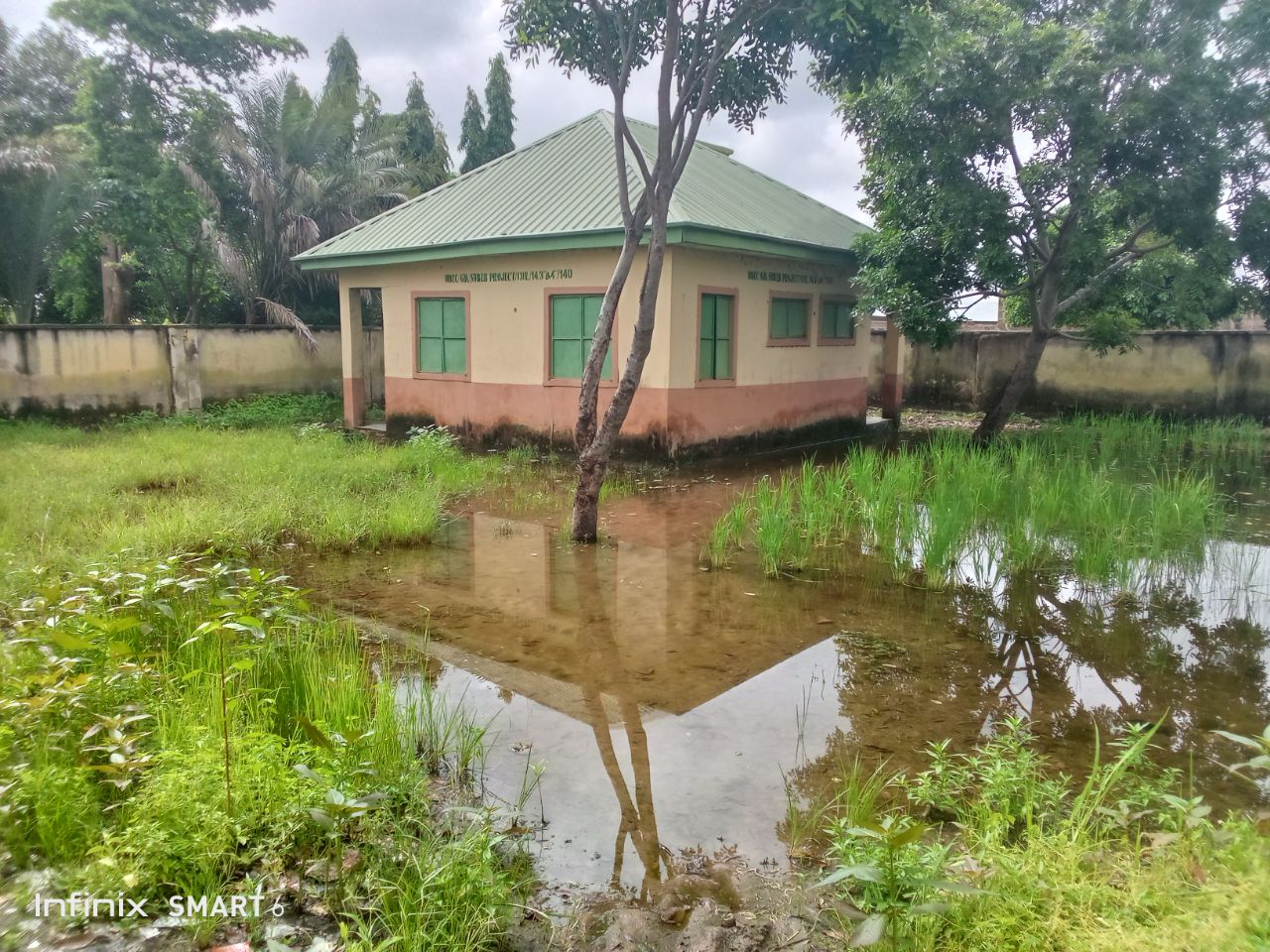By Ibrahim Yusuf
The ₦15 billion Almajiri Integrated Schools project initiated by former President Goodluck Jonathan has not achieved its objective as majority of the students in these schools in Gombe State are yet to graduate nine years after inauguration, DAILY NIGERIAN investigation has revealed.
The schools visited currently run only three classes from primary one to three. The Almajiri schools handed over to the State by the Federal Government have been deprived of the needed attention by successive administrations in Gombe state, thus hampering the intended objectives of the projects.
In 2019, the Gombe State Universal Basic Education Board, SUBEB chairman, Babaji Babadidi, claimed the state has 97 nomadic schools with 387 staff and no less than 27,503 learners. Mr Babadidi, who spoke at a five-day capacity development training for members of nomadic school-based management committee, also said that the state would build another 90 additional nomadic schools to enroll more learners.

Experts opine that it is not a walk in the park. The result of a research carried out by Professor Ayuba Guga and. Hadiza Hussaini in 2018 on the profile of nomadic education teachers and pupils in Gombe state, suggest a lot of work needs to be done. The research showed that there is a considerable number of unqualified teachers in nomadic education programs, adding that most teachers in nomadic education programs do not take part in career-enhancing seminars or workshops, and no form of incentive is given to the teachers.
Almajiri school head laments discrimination by secular education authorities
The head of the Almajiri school in Nafada local government area of Gombe state, Babawuro Tijjani, lamented how the state government has continued to neglect Almajiri Integrated Schools in Nafada while taking full responsibility for secular public schools.

Findings by this reporter revealed that majority of Gombe state government boarding secondary schools have special budgets for food, medicine, and human resources, with the exception of the five Almajiri Integrated Schools inherited from the Federal Government. The Almajiri pupils, teachers, and even the schools’ management itself, are practically left to themselves. Due to the absence of a school feeding program, most pupils from the school resort to street begging, a practice the Almajiri school initiative is supposed to curb.

The federal government introduced the National Home-Grown School Feeding Programme, NHGSFP, in 2016 with the purpose of providing a safety net for the poor, increasing enrollment, and eradicating malnutrition in school-age children while also stimulating the national agricultural economy.
“If the government want to feed students, I think Almajiri students should be the first to be fed because of their circumstances, but we are excluded. The exclusion simply tells us that Almajiri are not prioritized,” Mr Tijjani said.
The story is slightly different at Malam Basakkwace Almajiri School in Gombe, as the school is captured under the school feeding programme. However, majority of the students lamented that the food given to the school is always inadequate and not capable of feeding more than 15 students.
“Sometimes we go two to three months without receiving food. When we did not get the food for a long time, the response they usually give us is that, “we would have brought the food if we were given any.
“After President Muhammadu Buhari won the 2015 general election, there was a quick attempt to intervene in the food crisis in our school. A kitchen was built and cooking utensils was equally provided. We were so happy and thought our long-time prayers had been answered but that was not it. They were supposed to supply us food so that we can be cooking for students but they didn’t supply us even a mudu of rice or garri since 2015. The kitchen is now used as bedroom for Almajiris and teachers,” a teacher who asked for anonymity said.

Lack of qualified personnel is also hampering the smooth running of the school’s academic activities. Findings by DAILY NIGERIAN showed that the Malam Muhammadu Basakkwace Amajiri Integrated School located at Malam Inna, Gombe has only one staff (a teacher) from the Local Education Authority, LEA, while the Nafada School has only four teachers.
In some locations, the school premises are unkempt and not unconducive for learning. For instance, findings by DAILY NIGERIAN showed that none of the classrooms in Nafada Almajiri School, has tables and chairs. Students sat on bare floors, with leaky roofs and cracked classroom walls when this newspaper visited.
Asked if the terrible situation of the school has been reported to necessary authorities, the school head, Malam Babawuro Tijjani said that:
“Supervisors have been visiting the school to see our situation, but no action has been taken yet. We hope they will take action before the building collapses just as it did in Kwami Almajiri School.
Irregular school feeding programme sets Almajiri school initiative back
Due to the inconsistency in the school feeding programme, the few successes recorded at the onset of the NHGSFP is gradually being eroded. Mr Tijjani said the absence of the school feeding program is one of the reasons for the poor academic performance of students in his school. He revealed that since the official commissioning of the school in 2013, the school is yet to graduate students. He further revealed that the school only has pupils from primary one to three.

“Feeding is only what will keep the Almajiri in school, and in its absence, they go for hard labour, begging, and other jobs that consume much of their academic time. It is difficult to retain them in school. Some Almajiris leave after a few years in the school. As they reach primary two, they will leave and we are left to start with new set of enrollees. The cycle continues but I believe this will reduce if the students were fed,” Mr Tijjani said.

Similarly, the Head of Gombe Almajiri School, Malam Khamisu, revealed that although some of the students are intelligent they are left with no choice than to drop out of school often in search of food when hunger bites.
“We had many intelligent students who had retentive memories, but we had to lose them because of food. This is our major challenge,” he said.
Almajiri skills acquisition and learning centre deserted
The Nafada school has a skills acquisition centre where Almajiri learners are supposed to learn skills like tailoring, computing, and woodwork but this is not reality. According to the school head, the learners started learning smoothly and had shown reasonable signs of progress before most of them stopped coming.
“The students sew Salah dresses for my family and for about 20 children of the former Education Secretary, Alhaji Usman Gimba. At the moment, the centre has stopped working but we are making plans to revive it,” Mr. Tijjani said.
When asked why students stopped coming to learn at the skills centre, Tijjani said majority of the students feel abandoned by the government and influential people in the community.
The silver lining
Meanwhile a cross-section of Almajiri students from Malam Basakkwace Amajiri School, who spoke with this reporter expressed their excitement at their environment adding that it is conducive for learning. The students said learning Western and Islamic education at the same time is interesting and fun.
“I am happy to be learning both Islamic and Western education at the same time. My best subject is English language, and I want to proceed to university to study Pharmacy,” Jawad Zubairu, an Almajiri student said.
Another student, Umar Ibrahim said he is ready to further his education to university level if he gets to finish secondary school.
“Whenever I go outside and see people speaking English language or doing some simple calculations, I feel good that I understand what they are doing, despite the fact that I am from an Almajiri School. I want to study medicine if I have the opportunity,” said 15-year old Ibrahim.
Experts’ reaction
Reacting to findings in this report, a lecturer at the Faculty of Education, Gombe State University, Dr. Jummai Sagir said that Almajiri school environment and the feeding program play significant roles in the academic progression of the Almajiri boarding students. Dr. Sagir further said that the absence of food can obviously make people not learn, and a negative environment can affect the learning process.
“Food can affect your own work. Can you talk if you do not eat? It can impede learning. If you are hungry, you cannot learn, you cannot concentrate,” she said
Reacting to the poor nature of most Almajiri school environment, she affirmed that positive learning is only expected in a conducive learning environment and that the students’ leaving the school as a result of a poor environment is not surprising.
“When they do not have a roof over them, how can they stay there? When the school environment is rich and good, learning will be positive. When it is negative, it can affect the learning of the children negatively. In fact, they cannot even learn. There has to be a conducive environment for someone to learn. An unconducive learning environment will not help anyone, whether an adult or a child,” she said.
Dr. Sagir also called on the government to take the necessary actions for the sustenance of proper academic activities in the schools. “There must be inspectors or supervisors who will go and supervise what is happening there (at Almajiri schools) and report back to the government, so that necessary actions can be taken,” she stated.
An education expert, Sulaiman Ayuba, said that Almajiri students are sometimes discouraged by people around them who do not value education.
Gombe government evasive, fail to respond to FOI
Efforts to get government reaction to the findings of this report proved abortive. A freedom of information request sent to Gombe’s education ministry on 22 September, 2022 requesting for comments on the status of Nomadic Education in the state had no fruitful outcome. In response, the Commissioner for Education, Dauda Zambuk asked this newspaper to liaise with the coordinator, Better Education Service Delivery for All, BESDA, an agency under the ministry, Abdullahi Garkuwa and also the management of Gombe State Universal Basic Education Board, SUBEB, regarding the request.
When contacted, both BESDA and SUBEB declined comments stating that they didn’t receive any official correspondence from the commissioner to respond to questions from the press. This reporter escalated BESDA and SUBEB positions to Mr Zambuk and he specifically directed a BESDA/SUBEB staff simply identified as Mr Maina to grant an interview on his behalf adding that his office would not provide details of budgetary allocations to Gombe schools.
After agreeing to speak on the issue, Mr Maina later declined comments and refused to respond to calls and text messages.






